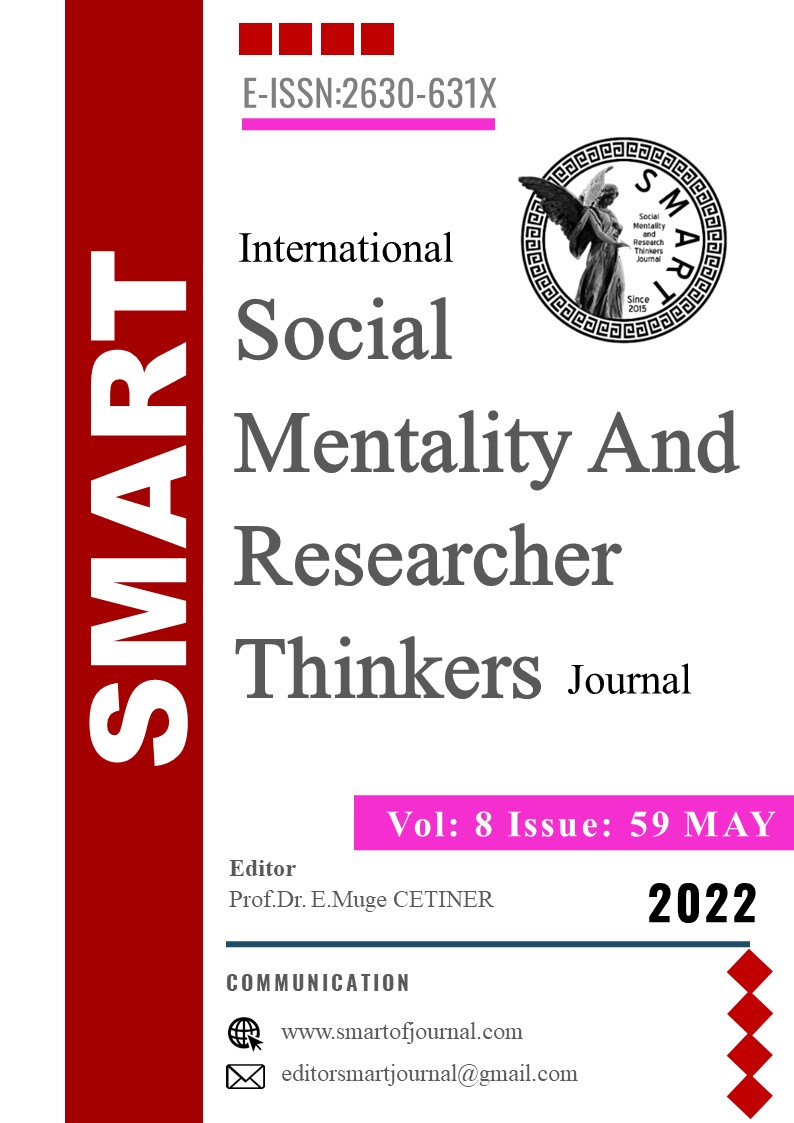Author :
Abstract
Otobiyografik bir yapıt olan Ölüler Evinden Notlar, Rus edebiyatının en önemli isimlerinden Fyodor Mihayilovic Dostoyevski'nin hayatından kesitler sunarak kimlik krizine ışık tutmaktadır. Fyodor Dostoyevski'nin yaşadığı sürgün, 'öteki' olarak ait olmama sorununun yol açtığı bir kültürel kimlik krizidir. Kültürel bellekteki belirsizlik ve yabancılaşma duygusunu derinleştiren bu öteki olma durumu ve devamındaki kimlik krizi, Dostoyevski'yi yarı otobiyografik eseri Ölüler Evinden Notlar 'ı yazmaya sevk etmiştir. Dostoyevski, eserinde, dönemin koşulları nedeniyle yaşadığı yerinden edilmenin etkisiyle uyandırdığı kimlik krizini ve aidiyet/ait olmama duygusunu başarılı bir şekilde sunmuştur. Dostoyevski’nin yaşadığı sürgün hayatının ve kimlik sorununun, yazarın kişilik ve eseri üzerinde bir etkisi olup olmadığını, eğer varsa; ne tür bir etkisi olduğunu tespit etmek bu çalışmanın asıl amacıdır. Yazarın sürgün sonucunda deneyimlediği kimlik problemi ve bu soruna karşı bakış açısı eserden doğrudan alıntılarla incelenecektir. Kişisel hayatında sürgün deneyimi yaşayan Fyodor Dostoyevski'nin romanda kendi hayatından esinlenerek edebi karakterlerini şekillendirdiğini tespit etmek mümkün olacaktır. Bu tespiti desteklemek için çalışmada psikanalitik edebiyat eleştirisi yönteminden yararlanılacaktır. Fyodor Mihayiloviç Dostoyevski’nin gerçek hayattaki deneyimlerine dayanarak kaleme aldığı bu romanda, sürgün temasının yanı sıra, Çarlık Rusya’sına yönelik bir eleştiri de yer almaktadır. Bu eleştirinin ışığında, özgürlük teması analiz edilerek evden uzaklaşma travmasının kişiyi ne derece yalnızlaştırarak toplumdan uzaklaştırdığı ve topluma yabancılaştırdığı ve nihayetinde “öteki”ni yarattığı gözlemlenecektir.
Keywords
Abstract
The autobiographical work, Notes from a Dead House, sheds light on the identity crisis by presenting sections from the life of Fyodor Mihayilovic Dostoevsky’s, one of the most important names of Russian literature. The exile experienced by Fyodor Dostoevsky is a crisis of cultural identity caused by the problem of not belonging as being ‘the other’. This identity crisis of being ‘the other’, which has deepened the sense of uncertainty and alienation in cultural memory, prompted Dostoevsky to write his semi-autobiographical work, Notes from a Dead House. Dostoevsky, in his work, successfully presented the crisis of identity and the sense of (un)belonging that he aroused because of the effect of the displacement he experienced due to the conditions of the period. Within the context of the study, it is aimed to examine the relationship between exile and migration experienced by the author himself in the novel. It will be possible to determine that Fyodor Dostoevsky, who had an exile experience in his personal life, shaped his literary characters by being inspired by his own life in the novel. In order to support this determination, the method of psychoanalytic literary criticism will be applied in the study. In Notes from a Dead House, which was was based on Dostoevsky’s real-life experiences, there is a criticism against Tsarist Russia as well as the theme of exile. In the light of such information, by analyzing the theme of freedom, it will be observed how much the trauma of being away from home alienates the person from society and eventually creates “the other”.
Keywords
- Year: 2022 MAYPp: 826-832Arrival
- 25 February 2022 Published
- 30 May 2022
- Güven Kılıçarslan, Z.(2022). “TheRelationship Of ExileAnd The Other InFyodor Dostoevsky'sNotes From A DeadHouse”, InternationalSocial Mentality andResearcher ThinkersJournal, (Issn:2630-631X) 8(59): 826-832Social Mentality And





